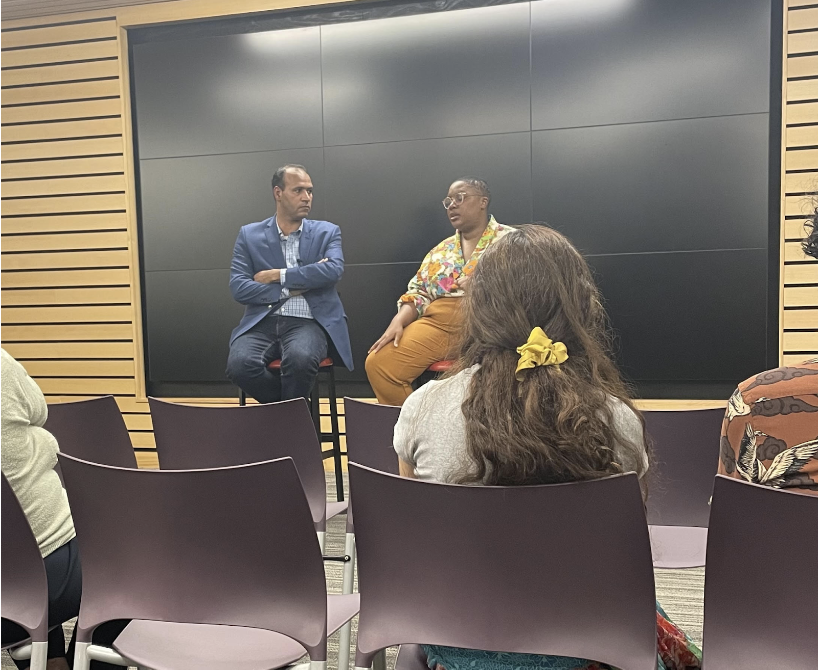Rhiana Gunn-Wright, a climate activist, public policy analyst, and architect of the Green New Deal framework, visited the College on Friday evening to discuss environmental racism and climate change. Associate Professor of Arabic Studies Brahim El Guabli facilitated the talk.
Gunn-Wright’s work focuses on researching and implementing policy that lies at the intersection of climate change, identity, and the national economy. Gunn-Wright is bestknown for her principal role in the development and proposal of the Green New Deal in 2019, which Representative Alexandria Ocasio-Cortez of New York and Massachusetts State Senator Ed Markey introduced as bills in both chambers of Congress. Although the set of policies comprising the Green New Deal was not immediately adopted at a federal level, some of its central policies and infrastructure changes were integrated into the recently passed Inflation Reduction Act (IRA), which has allocated a significant amount of federal funding towards climate change initiatives throughout the nation.
Gunn-Wright now serves as the director of the Climate Policy Program at the Roosevelt Institute, which focuses on the convergence of public policy, climate change, and the adaptation of an equitable economy.
At her talk, Gunn-Wright discussed the significance of the ideas presented in the Green New Deal, explaining the need for environmental policy that also emphasizes diverse and accessible economic change.
“It is very hard to have a functioning society — much less one that can function and solve an existential crisis like climate change — when you have inequity and inequality at these incredibly high levels,” she said. She added that inclusive, comprehensive climate policies like the Green New Deal are not only necessary for disadvantaged populations but for society as a whole in the pursuit of impactful and sustainable change.
“How do we transform the economy to move away from fossil fuels, and, simultaneously, how do we create a more just economy that also helps repair legacies of oppression and environmental racism?” Gunn-Wright asked, framing the principal questions guiding the work of the Climate Policy Program.
Gunn-Wright and El Guabli then discussed economic considerations surrounding domestic climate change policies, the impact of recent extreme weather events on the public perception of the global climate crisis, and the merits and shortcomings of the IRA.
Specifically, the role of the Biden administration’s Justice40 Initiative (part of the IRA) played an integral part of the conversation due to its overlap with much of Gunn-Wright’s work at the Roosevelt Institute. The Justice40 sub policy of the IRA, Gunn-Wright explained, was developed with the intent of alloting 40 percent of federal spending pertaining to environmental safety and climate change, to communities that were identified as possessing concentrated disadvantage. While it seemed exceedingly promising in its essence, Gunn-Wright scrutinized the consequent application of the policy itself, revealing that in practice, the Justice40 initiative had not yet lived up to its commitments, as many of the needs of the target communities were being superseded by the agendas of policymakers. Gunn-Wright revealed, “Justice40 is some of the only targeted environmental justice funding, so to use it for technologies that by and large environmental justice advocates are advocating against — it’s kind of a slap in the face.”
Following the lecture, audience members had the opportunity to ask both Gunn-Wright and El Guabli questions. Hikaru Hayakawa ’24 asked, “How do you communicate to other environmentalists and climate change advocates about the need to take the time to speak to community members?”
Gunn-Wright responded by stressing the value of local involvement in climate change initiatives and education. She told the audience that, when communities are not informed about the roles they play in the climate crisis or the goals of environment-based legislative reforms, they are less inclined to support the implementation of such laws. “Their concerns aren’t going away just because you won’t let them talk about them,” she concluded.









